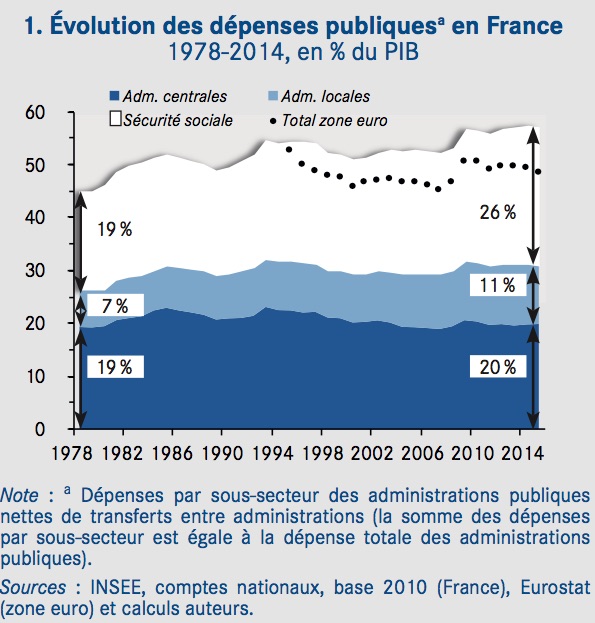Experts believe that the duality of the health system between health insurance and complementary health insurance hinders expenditure control.

The Economic Analysis Council (CAE) is not kind to the management of health spending in France. In a note published this Thursday, entitled “What strategy for public spending? “, the body responsible for advising the Prime Minister on economic issues denounces the excessive weight of the health insurance system.
He recalls the figures from the OECD: public health spending accounted for 8.7% of GDP in 2014, to which is added 2.4 percentage points of GDP for private spending, mainly from complementary funds.
13.4 billion operating costs
A duality in the reimbursements that he points out. “The mixed nature of the French health insurance system hinders the control of health expenditure (due to a lack of coordination between Social Security and complementary organizations) and involves high management costs”, underlines the CAE in its report.
These costs amounted to 13.4 billion euros in 2015, including 7.2 billion for organizations attached to Social Security. And, while the other main public expenditure items (central and local governments) stabilize, health-related spending continues to rise. “As a proportion of GDP, the public wage bill has grown very little over the past 35 years,” he adds, as has the economic weight of retirement pensions.

A not very social mix
The mix would therefore be, at least in part not insignificant, responsible for budgetary drifts. And not only. The economists of the EAC also accuse it of creating social inequalities.
“By encouraging the subscription of generous collective contracts, the system feeds excess fees and increases in medical tariffs,” they explain. These collective contracts pool the risks between low-risk individuals (employees), while the unemployed and the elderly must pay a higher premium in order to access additional insurance. “
Separate activities
The CAE proposes to overhaul the system, by eliminating this mixed system. A “basket of solidarity care” would cover basic expenses, while optional insurance would cover patients outside this basket. The activities would thus be separated, and each of the actors would have the latitude to negotiate with the providers of care.
The CAE believes that in this way, it would be possible to control expenditure, the activity of health professionals, and excess fees. Its members also believe that such an overhaul would promote real competition in the complementary sector, which would again limit spending. It will still be necessary to convince healthcare providers …
.















